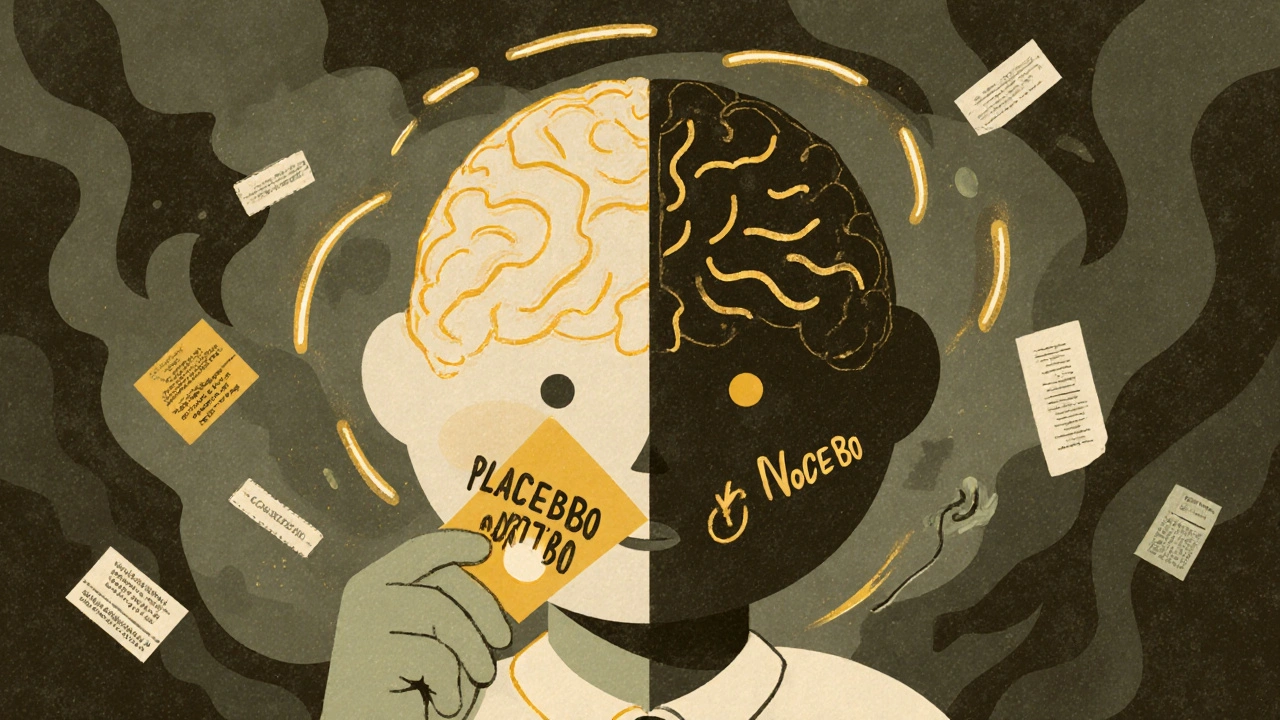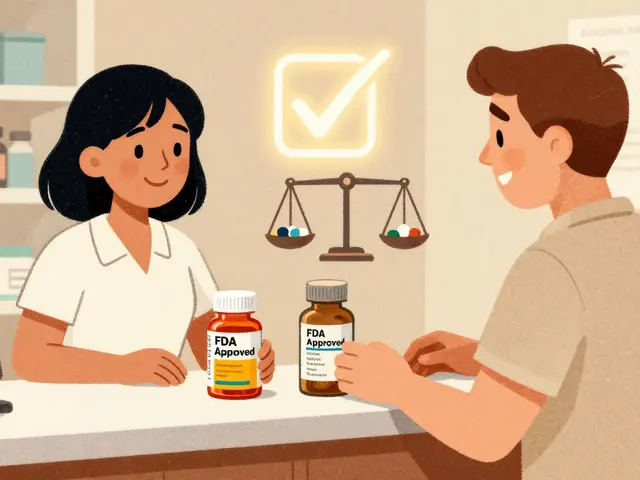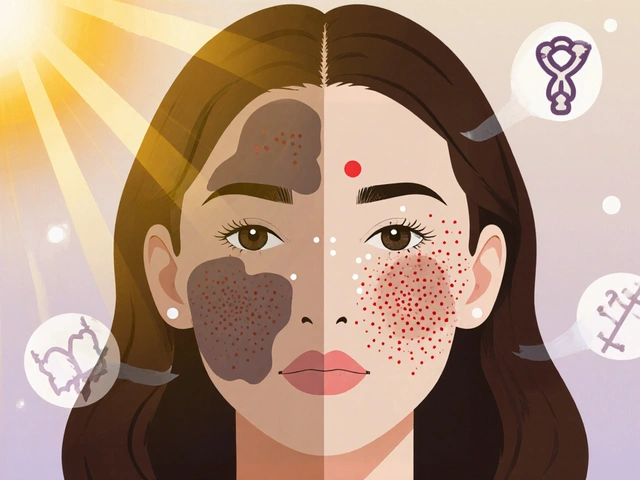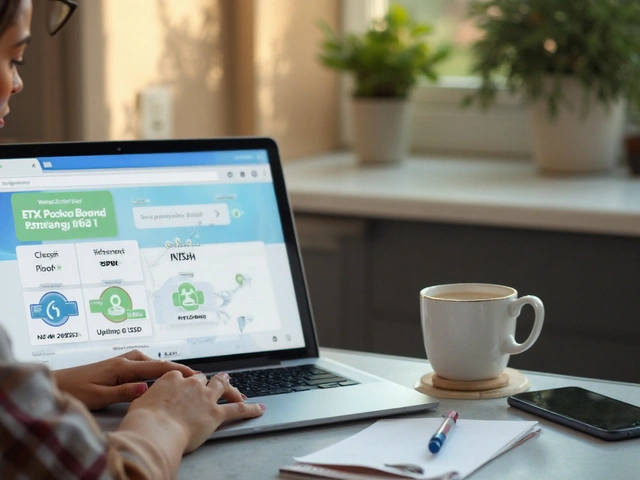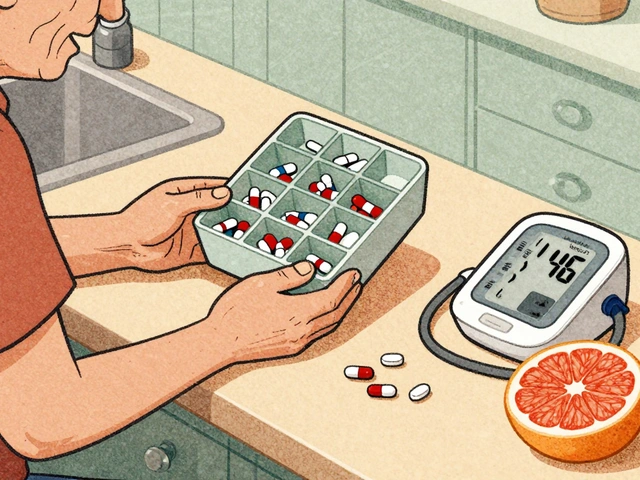Nocebo Responses: When Expectation Makes You Sick
When you take a pill and feel worse—not because of the drug, but because you were told it might cause nausea, headaches, or fatigue—that’s a nocebo response, a negative reaction triggered by expectation rather than chemistry. Also known as the dark twin of the placebo effect, it’s real, measurable, and often ignored in medical conversations. This isn’t weakness or imagination. Studies show people given sugar pills and warned about side effects report those side effects at the same rate as people taking real drugs. Your brain doesn’t distinguish between a threat you’re told about and a real one—it reacts physically.
Placebo effect, the positive change from believing a treatment will help gets all the attention, but the nocebo response, the harmful outcome from fearing side effects is just as powerful. It’s why some patients stop taking blood pressure meds after reading the label. It’s why people avoid statins because they heard they cause muscle pain—even when they took a dummy pill. And it’s why doctors sometimes underprescribe drugs, fearing patients will quit due to anticipated side effects. The negative expectations, the mental belief that something will harm you become self-fulfilling.
These responses show up in real life every day. Someone told that a new antibiotic causes dizziness? They get dizzy. Someone warned that a painkiller might cause stomach upset? Their stomach aches. Even when the drug is harmless, the mind triggers real symptoms—increased heart rate, muscle tension, nausea, fatigue. It’s not fake. It’s biology. Your stress hormones kick in. Your nervous system reacts. Your body believes it’s under threat. And that’s why understanding nocebo responses matters: it’s not just about drugs. It’s about how information is shared, how warnings are framed, and how much power your own expectations hold over your health.
What you’ll find in the posts below isn’t a list of theories—it’s real-world comparisons of medications people actually use, from Biltricide to Eliquis, from diclofenac gel to doxycycline. Each article dives into what works, what doesn’t, and how side effects are reported. Many of these drugs carry warnings that trigger nocebo responses. But knowing the difference between a real reaction and an expected one? That’s how you make smarter choices—without letting fear steer your treatment.
